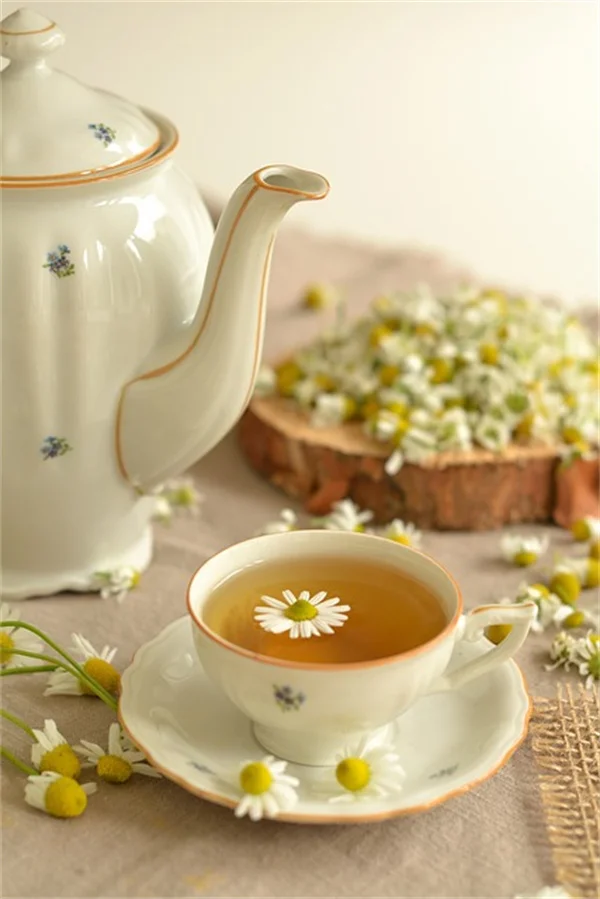How to Clean Brick Floors: Your Ultimate Guide to Sparkling Surfaces
How to clean brick floors? The answer is simple: regular maintenance and the right techniques can keep your brick floors looking their best! Brick floors, while incredibly durable, need a little extra love to prevent stains and damage. You might be wondering why it’s so important to clean them properly. Well, neglecting your brick floors can lead to permanent stains and a dull appearance. In this article, I’ll guide you through everything you need to know about cleaning and maintaining your brick floors, so you can enjoy their beauty for years to come. Together, we’ll explore effective cleaning methods, tools you'll need, and some handy tips to ensure your brick floors stay in top-notch condition. Let’s dive in and make those bricks shine! 🧽✨
E.g. :How to Clean Candle Wax Off Floor: 7 Simple Steps for a Spotless Finish
- 1、Why Your Brick Floors Deserve Some TLC 🧹
- 2、Your Ultimate Brick Floor Care Kit 🧰
- 3、The Foolproof Cleaning Routine (That Actually Works) ✨
- 4、When DIY Just Won't Cut It 🆘
- 5、Pro Tips From the Brick Whisperers 🗣️
- 6、Your Brick Floor FAQs Answered ❓
- 7、FAQs
Why Your Brick Floors Deserve Some TLC 🧹
Let's be honest - we often forget about our floors until we see that first stubborn stain. But brick floors? They're like that reliable friend who never complains, yet deserves way more attention than we give them. Regular maintenance isn't just about keeping them pretty - it's about protecting your investment and preventing those "oh no!" moments when permanent stains set in.
The Science Behind Brick's Quirks
Brick floors have personality - they're porous, meaning they'll soak up spills like a thirsty sponge if we're not careful. Ever noticed how water droplets disappear into brick while pooling on tile? That's your first clue about their special care needs. The good news? With proper care, these floors can outlast most other flooring options - we're talking generations of foot traffic!
Here's a fun comparison to put things in perspective:
| Floor Type | Average Lifespan | Maintenance Frequency |
|---|---|---|
| Brick (with care) | 100+ years | Weekly light cleaning |
| Hardwood | 25-50 years | Bi-weekly cleaning |
| Laminate | 10-25 years | Weekly cleaning |
Your Brick's Worst Enemies
Picture this: you're hosting a dinner party when someone spills red wine. Panic mode activated! But did you know these are actually worse for your brick floors:
- 🦠 Mold from excess moisture
- ⚡ Harsh chemical cleaners
- 👢 Grit and dirt grinding into the surface
Wait - does this mean you need to baby your brick floors? Not at all! They're actually incredibly durable. The key is smart maintenance rather than constant fussing.
Your Ultimate Brick Floor Care Kit 🧰
Forget those fancy cleaning systems with 15 attachments. Here's what you actually need to keep your brick floors looking sharp:
 Photos provided by pixabay
Photos provided by pixabay
The Bare Essentials
1. A good broom - not that flimsy dollar store one that leaves more behind than it picks up. Look for stiff bristles that can get into all those charming brick crevices.
2. Microfiber mop - your brick's new best friend. These magical tools pick up dirt without scratching, and they're machine washable. Pro tip: buy two so you always have a clean one ready!
Cleaning Solutions That Won't Break the Bank
You could spend $20 on specialty cleaners... or use what's already in your pantry:
- White vinegar (the MVP of natural cleaners)
- Baking soda (for those "oops" moments)
- Mild dish soap (just a few drops!)
Here's my favorite all-purpose mix: 1 cup vinegar + 1 gallon warm water + 1 teaspoon dish soap. It cuts through grease without harsh chemicals, and your floors will smell fresh without that artificial "clean" scent.
The Foolproof Cleaning Routine (That Actually Works) ✨
Step 1: The Dry Dance
Before adding any moisture, let's get rid of the dry stuff. Sweep in one direction following the brick pattern - it's not just about aesthetics, this technique actually removes more dirt. Think of it like brushing hair: you wouldn't randomly yank a brush in all directions!
 Photos provided by pixabay
Photos provided by pixabay
The Bare Essentials
Here's where most people go wrong - they dunk the mop like they're baptizing it. Wrong move! Your mop should be damp, not dripping. Imagine wringing out a wet towel until it's just moist enough to clean your face - that's the perfect moisture level for brick.
But what about stubborn spots? Try this trick: sprinkle baking soda directly on the stain, spray with your vinegar solution, and watch the fizzy magic happen. After 5 minutes, gently scrub with a soft brush.
Step 3: The Often-Forgotten Finale
After mopping, go over the floor with clean water to remove any soap residue. This is like rinsing shampoo from your hair - skip it, and you'll be left with a dull, sticky mess. Then... here's the kicker... dry the floor with clean towels. Yes, it's extra work, but your future self will thank you when there are no water spots or slippery surprises.
When DIY Just Won't Cut It 🆘
We've all been there - that one stain laughs in the face of our best cleaning efforts. When should you call in the pros?
The Point of No Return
If you notice any of these red flags, it's time to phone a friend (the professional kind):
- White powdery residue (efflorescence)
- Cracks or crumbling mortar
- Stains that reappear after cleaning
Did you know professional cleaning can actually restore the original color of aged brick? It's like a facelift for your floors!
 Photos provided by pixabay
Photos provided by pixabay
The Bare Essentials
Here's a question most homeowners never ask: "Should I seal my brick floors?" The answer might surprise you. While sealing creates a protective barrier, it changes the floor's character - that lovely matte finish becomes shiny, and the brick can't "breathe" as naturally. For interior floors, many experts recommend leaving them unsealed but maintaining them properly.
The exception? If you have a particularly porous brick or an area prone to spills (like a kitchen), a penetrating sealer might be worth considering. Just know it's not a one-and-done solution - sealers need reapplication every few years.
Pro Tips From the Brick Whisperers 🗣️
Seasonal Adjustments
Your brick floors have different needs throughout the year:
- Summer: More frequent sweeping to combat tracked-in dirt
- Winter: Extra attention to salt and moisture
- Spring/Fall: Perfect time for deep cleaning
The Forgotten Art of Brick First Aid
For minor scratches or chips, here's a clever trick: rub a matching colored crayon over the damage, then buff with a soft cloth. It's not permanent, but it'll disguise flaws between professional repairs. Just don't use this hack near open flames - we don't need melted wax disasters!
Remember that time you dropped a cast iron pan on your brick floor? We've all been there. For small chips, collect the brick dust (it usually creates its own when damaged), mix with white glue, and press into the void. It's like spackle for your floors!
Your Brick Floor FAQs Answered ❓
"Can I Use a Steam Mop?"
This is the #1 question I get, and the answer might surprise you. While steam mops are great for many floors, they're a no-go for brick. Why? That intense heat can force moisture deep into the pores, potentially causing cracks over time. Stick to traditional mopping for happy, healthy bricks.
"Why Does My Brick Floor Look Dull?"
If your floors have lost their luster, ask yourself: Have I been using the wrong cleaners? Many commercial products leave behind a residue that builds up over time. Try stripping this buildup with a solution of 1/4 cup borax per gallon of warm water, then rinse thoroughly. You'll be amazed at the difference!
Here's a thought: When was the last time you really looked at your brick floors? Not just a glance while rushing by, but really examined their texture and color variations? These floors tell a story - each mark and patina adds character. Our job isn't to make them look factory-new, but to help them age gracefully while protecting their structural integrity.
Cleaning brick floors can feel overwhelming, but with the right approach, it becomes a manageable task that protects your investment. We’ve covered everything from the essentials of maintaining those charming surfaces to creating effective cleaning solutions using items you likely already have at home. Remember, regular maintenance is key to keeping your brick floors looking their best and extending their lifespan. So, the next time you notice a bit of grime, take a moment to sweep and mop instead of letting stains set in. I encourage you to give these tips a try—you might be surprised at how easy it is to keep your floors in top shape! If you have any questions or want to share your cleaning success stories, feel free to drop a comment below. Let’s keep the conversation going! 🌟
Additionally, don't forget about the importance of seasonal adjustments in your cleaning routine. Just like how we adapt our wardrobes, our cleaning methods should change with the seasons too! For instance, during summer, be more diligent about the dirt tracked in, while in winter, focus on salt and moisture buildup. Each season brings its own challenges, but with a little foresight, we can keep our brick floors shining year-round. So, what’s your next step? Will you tackle that stubborn stain, or perhaps consider sealing your floors for extra protection? Whatever you choose, remember that maintaining your brick floors is not just about aesthetics—it’s about preserving the story they tell! 🧹✨
E.g. :Best Natural Cleaner for Brick Tile Floors - North Country Nest
FAQs
What is the best way to clean brick floors?
The best way to clean brick floors is to follow a simple routine. Start by sweeping with a good broom to remove dirt and debris. Then, use a microfiber mop dampened with a cleaning solution made from one cup of white vinegar, one gallon of warm water, and a teaspoon of mild dish soap. This combination effectively cuts through grease without harsh chemicals, keeping your floors fresh. Remember, you want your mop to be damp, not dripping, to avoid over-saturating the bricks. Regular maintenance, such as this, ensures your floors stay looking great!
How often should I clean my brick floors?
You should aim to clean your brick floors at least once a week with light cleaning. This routine involves sweeping and occasional damp mopping to remove any grime or spills. However, if you're hosting events or have heavy foot traffic, you might want to increase frequency. It’s all about preventing dirt buildup and maintaining that beautiful brick appearance. Trust me, a little regular care goes a long way in preserving your investment!
Can I use harsh chemicals on my brick floors?
Absolutely not! Harsh chemicals can damage the porous surface of brick floors. Instead, opt for natural cleaners like white vinegar or mild dish soap. These options clean effectively without harming the bricks. Remember, your goal is to protect your floors while keeping them clean. Using gentle solutions ensures longevity and maintains the character of your brick!
Is sealing necessary for brick floors?
Sealing brick floors is not always necessary, but it depends on the type of brick and its location. For most interior floors, experts suggest leaving them unsealed to allow them to breathe naturally. However, if your bricks are particularly porous or in areas prone to spills, a penetrating sealer can help protect them. Just keep in mind that sealing is not a one-time deal; it requires reapplication every few years to maintain its effectiveness. Weigh your options carefully!
What should I do if I notice stains on my brick floors?
If you notice stains on your brick floors, don't panic! For most stains, you can sprinkle baking soda directly on the spot, then spray it with your vinegar solution. The fizzy reaction will help lift the stain. After letting it sit for a few minutes, gently scrub with a soft brush. If the stain persists, it might be time to call in a professional. They can help restore the original look of your brick, bringing it back to life!


